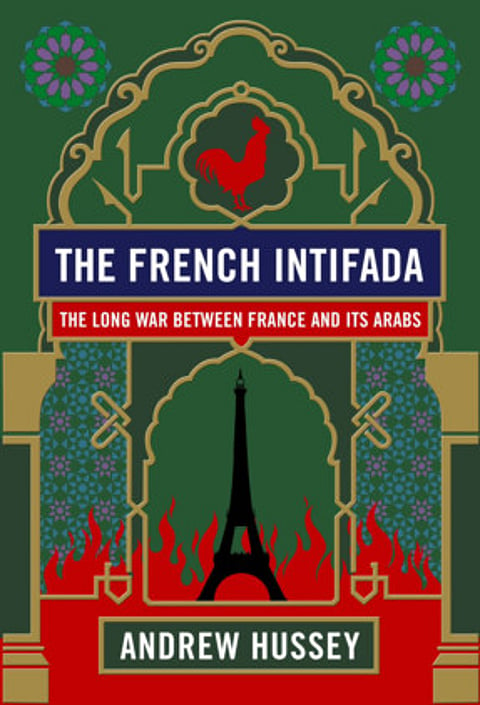France’s two peoples
The nation’s uneasy relationship with its Muslim population and former Maghreb colonies

The French Intifada: The Long War Between France and Its Arabs
By Andrew Hussey, Granta, 464 pages, £25
In “How can we be French?”, an influential 2007 article for Le Figaro Littéraire, the leading French intellectuals Alain Finkielkraut and Max Gallo deplored an enfeebling culture of repentance over France’s colonial legacy. Ostentatious moralising that masqueraded as contrition for a bloodstained past was a betrayal of France’s history and identity, they asserted.
Arguably, the anger and alienation of the ex-colonised are an even more useful guide to contemporary France than the guilty conscience of the ex-colonisers. In his refreshing account of French colonialism and its impact on the societies of modern France and north Africa, Andrew Hussey contends that French identity, and even the French state itself, are under assault from embittered, often radicalised elements in its Muslim population. Many reject the values intrinsic to France since the 1789 revolution. Hussey describes a France “whose identity as the world capital of liberty, equality and fraternity is at every step challenged and confronted by antagonisms with its cultural opposite — the secular Republic against the politics of its dispossessed colonial subjects”.
With Muslims from north Africa, the Middle East and sub-Saharan Africa making up more than 5 million of metropolitan France’s 63 million people, the nation has Europe’s largest Muslim population. In the banlieues, or suburbs, of the French capital, Muslim communities trapped in desolate, crime-ridden housing estates are growing so fast that they will soon outnumber the 2 million inhabitants of central Paris. The banlieues of Lyon, Marseille, Strasbourg and Toulouse are little different.
But in Hussey’s view, the deeper threat is not economic distress but cultural exclusion. The banlieues are like prisons impenetrable to French civilisation. Behind the invisible walls that separate them from France’s elegant cities, many Muslims — whether fully fledged or aspiring French citizens — are cut off from the humanist values and material progress for which modern France stands.
Like Catholics in the first 40 years of the Third Republic, the Muslims hear from France’s politicians and educators that they must be citizens of France first and practitioners of religion second. But this is unhelpful advice if, in reality, many Muslims are at best second-class citizens and see themselves as “the angry and dispossessed heirs to the French colonial project”.
Hussey, author of “Paris: The Secret History” (2006), is a Paris-based British writer whose latest work blends colourful narrative history with lively reportage and analysis of the modern social and political scene in France and north Africa. Twenty-eight of the book’s 32 chapters tell the story of Algeria, Morocco and Tunisia under French colonialism, with Hussey adding a personal touch from time to time as he ventures into the backstreets of Algiers, Casablanca, Tangiers and Tunis.
He pays most attention to Algeria, the Maghreb’s largest state, where French rule produced the most traumatic legacy. From 1881 to 1962, when it gained independence after eight years of war, Algeria was governed as no mere colony but as an integral part of metropolitan France. Most Algerians undoubtedly wanted independence, but they found it psychologically disorienting, Hussey suggests, to be cut off abruptly from a state that had for so many generations encouraged them to think of France as the mother country.
Disillusion set in as Algeria’s post-independence rulers, known informally as “le pouvoir” (“the powers that be”), turned out be more skilled at one-party rule, assassination of their political enemies and self-enrichment than at raising the quality of life for the masses. A vicious civil war pitting the armed forces against Islamists in the 1990s left scars unhealed to this day.
Yet precisely because so many Algerians and their descendants live in France, or have relatives there, French civilisation — a simultaneous object of hatred and unrequited love — still looms large in the Algerian imagination. “In today’s Algiers, the French may have left, but France is still the enemy. Yet it also represents the Promised Land,” Hussey observes.
As befits a writer who studied at Jean Moulin-Lyon 3 university, Hussey is particularly interesting on right-wing Catholicism and racial tensions in Lyon, France’s second city, whose banlieues experienced riots in 1981 around the same time as London and Liverpool. “The real danger of the right-wing underground culture in Lyons is that it stands in such sharp contrast to the multiracial composition of its population,” Hussey writes. “For this reason, despite the recent claims of urban renewal, the Arab youth of Lyons still see themselves at war with the state, their anger and frustration exacerbated by the sense that they are not being listened to.”
Hussey ends his book with a sketch of France’s prison system, in which he suggests about seven in 10 inmates are Muslim — an estimate that speaks eloquently to the failures of postcolonial integration. Are French jails, the author asks, serving inadvertently as “the engine room of Islamic radicalism in France”? It is a troubling question, but many readers will feel Hussey leaves himself too little space to give an adequate answer. Taken as a whole, though, “The French Intifada” is a good introduction to the most sensitive issues of race, religion, citizenship and history that grip modern France.
–Financial Times


